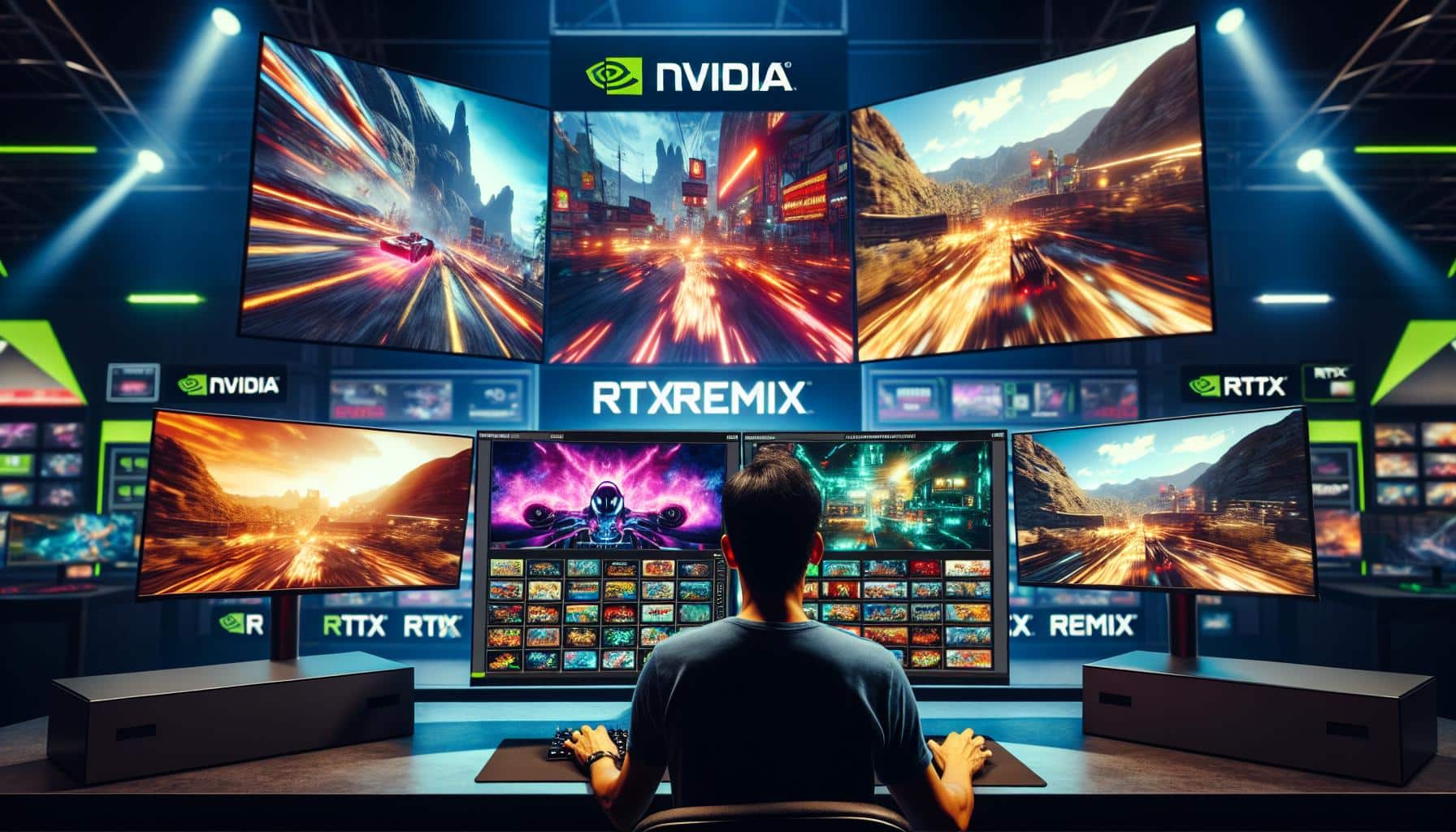Nvidia’s RTX Remix: Enhancing Old Titles with Mixed Results
Nvidia’s RTX Remix, a platform that offers modding tools for remastering old video games, has recently entered open beta, and the first results are in. However, the outcomes are somewhat mixed, raising questions about the effectiveness of the tools.
Mixed Reactions to the Demo of Max Payne with RTX Remix Enhancements
A recent demo showcased the beloved 23-year-old game, Max Payne, with the RTX Remix enhancements. Visually, the game looked stunning while running on the RTX 4080 graphics card, thanks to the implementation of path tracing technology. However, performance-wise, it experienced a significant drop in framerate and increased power consumption.
Sacrificing Performance for Enhanced Graphics
The drastic reduction in performance and increased power consumption when using the RTX Remix mod with Max Payne raises concerns. While some argue that this may be expected due to the age of the game, it contradicts the purpose of the RTX Remix toolkit itself, which aims to enhance older titles. If the result is sacrificing performance for a prettier appearance, it begs the question of whether it is truly worth enabling the mod, particularly when many old games already suffer from performance issues.
Enhancing Older Titles: Is It Always Necessary?
Furthermore, not all older games require remastering. Many classic titles compensated for their technical limitations by creating unique atmospheres through interesting art design choices. Games like Portal 2, for example, possess excellent art direction and intelligent design that make a graphic overhaul unnecessary.
Successful Examples of RTX Remix Projects
Despite some disappointments, RTX Remix has also produced successful remasters. Projects like The Elder Scrolls III: Morrowind remaster, Fallout: London, and Half-Life 2 RTX: An RTX Remix Project have demonstrated the potential of the platform. These community-led remasters show that when fans deeply understand the game they are remastering, they can improve the visuals without sacrificing performance or losing the original aesthetic.
A Lack of Care in the Max Payne Tech Demo
Unfortunately, the Max Payne tech demo does not exemplify the careful approach seen in other successful RTX Remix projects. By disregarding gaming performance, a fundamental aspect of any game, in favor of visual enhancements, this demo raises concerns about the value of path tracing technology.
Unnecessary Remastering: The Case of Portal
Another example that showcases the unnecessary nature of some remastering efforts is the Portal RTX remake. The original game looked incredible and has aged remarkably well. Therefore, there seems to be no valid reason for a remaster that does not improve graphics or enhance performance.
As Nvidia’s RTX Remix platform enters its open beta phase, the community hopes for more high-quality remasters like The Elder Scrolls III and Fallout: London. However, based on current trends, it appears that we may see more Max Payne remasters instead.
Analyst comment
Overall, the news can be evaluated as mixed. The positive aspect is that Nvidia’s RTX Remix platform has showcased successful remasters like The Elder Scrolls III: Morrowind and Fallout: London. However, the negative aspect is that the recent demo of Max Payne with RTX Remix enhancements resulted in a significant drop in framerate and increased power consumption. As an analyst, I predict that the market for remastering old video games using the RTX Remix tools may face challenges due to concerns about sacrificing performance for enhanced graphics and the unnecessary nature of some remastering efforts.













